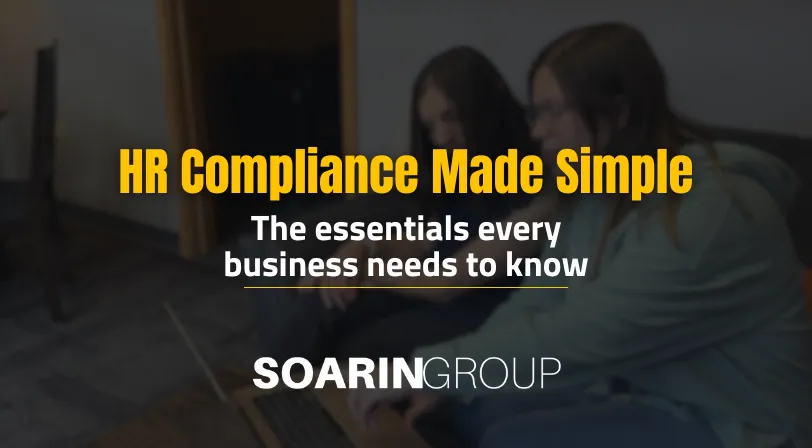
HR Compliance Basics Every Business Should Know
HR Compliance Basics Every Business Should Know
Running a business isn’t just about sales, growth, or customer service, it’s also about making sure your workplace follows the rules. HR compliance may not always be exciting, but it’s essential. The right policies and practices protect both the business and its employees, reducing risk while creating a fair workplace.
So, what are the basics every business should know?
1. Employment Laws and Regulations
Every company needs to understand and comply with federal, state, and local employment laws. These include:
Wage and Hour Laws (like minimum wage, overtime, and proper time tracking)
Anti-Discrimination and Harassment Laws (to ensure a safe and inclusive workplace)
Leave Laws (such as FMLA or state-specific family and medical leave policies)
Ignoring these can lead to costly fines and even lawsuits.
2. Employee Classification
Misclassifying employees as independent contractors or exempt vs. non-exempt can cause major problems. Proper classification affects payroll, overtime, and tax obligations. Getting this right is one of the most important compliance basics.
3. Employee Records and Documentation
Businesses are required to maintain certain employee-related documents, like I-9 forms, payroll records, and personnel files. Organized employee records not only meet legal requirements but also provide clarity and support if disputes arise.
4. Workplace Policies
Clear, written policies in an employee handbook help ensure consistency and fairness. Policies around conduct, attendance, benefits, and discipline set expectations and create transparency for everyone.
5. Workplace Health and Safety
Compliance also extends to employee well-being in the workplace. Following OSHA regulations and maintaining health and safety procedures ensures a safe environment for everyone, whether it’s an office, job site, or remote work setup.
Why Compliance Matters
HR compliance isn’t just about avoiding penalties. It creates trust, consistency, and stability in the workplace. Employees feel more secure when they know the company is following the rules, and leaders can focus on growth instead of worrying about risks.
Final Thought
Compliance may sound complicated, but starting with the basics goes a long way. Employment laws, proper classification, employee records, workplace policies, and workplace health and safety are the foundation of a healthy workplace.
For businesses that want to grow with confidence, HR compliance isn’t optional, it’s essential.
